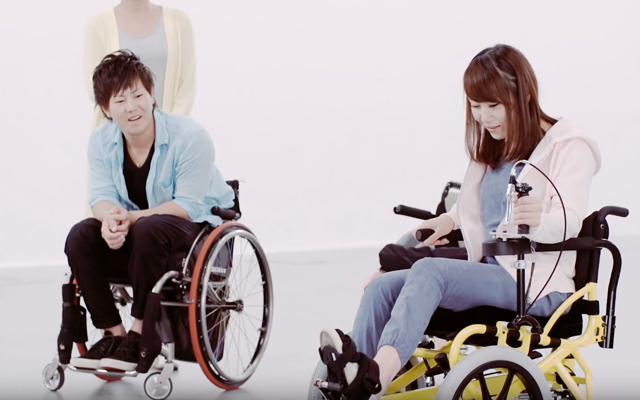
Source: YouTube
People Are Regaining Mobility In Their Legs With This Incredible Pedal-Driven Wheelchair
- Source:
- COGY / COGY | あきらめない人の車いす / 自分の足でこげる車いす「COGY」
- Tags:
- Japan / Technology / Wheelchair
Related Article
-

Tokyo Cafe Serves Up The Most Beautiful Pancakes You’ll Ever See In Your Life
-

Tokyo restaurant serves up sakura tacos to celebrate cherry blossom season
-

Pocari Sweat: The Best Drink To Beat Heat Exhaustion In Japan’s Summer Heat[PR]
-

Dekatora: The Tricked Out Japanese Truck Culture That Brings Transformers To Life
-

Traditional Craft Meets Pac-Man In A Collaboration We’ve All Been Waiting For
-

Award-Winning Japanese Photographer Captures Majestic Scenes Of Fireflies In The Night-Time


Wheelchairs are generally thought of as secondary legs for people who are unable to use theirs, whether it be because of an accident that rendered them paraplegic, or because they were born without function in their legs. But what if instead of simply being a means of easier transportation for these people, wheelchairs were built in such a way as to promote the movement and rehabilitation of their legs?
That was when Japanese company TESS came up with the ingenious idea of inventing a wheelchair that allowed its users to simulate walking by utilizing the tiny reactions of the legs triggered from the spine.
COGY is the name of this extraordinary “wheelchair for those who still believe.” Regardless of whether an individual suffers from paralysis in one or both legs, the wheelchair can be pedaled into motion as long as they can move either of their legs even just a tiny bit. Yasunobu Handa of Tohoku University breaks down the mechanics behind it like this:
Though gaining full mobility on the COGY might require some practice, it creates an opportunity for people to use their legs once more, or for the first time in their lives. Initially invented for rehabilitation, many people are now using it simply as a way to start moving around on their own, with their own bodies.
Source: COGY
COGY can be purchased for 329,000 yen (3,225 USD) for a medium-sized chair, or for 370,000 yen (3,625 USD) for a large one, and comes in Solid Yellow and Italian Red. It can be tried out or rented too, so that potential consumers can be sure that it is a good option for them. A smaller sized COGY for small children is currently under development, so kids too will one day be able to pedal through their everyday lives.
No one said wheelchairs themselves can’t be a means for rehabilitation, and COGY is proving that as long as people are willing to believe, there is always hope for individuals with paralysis in regaining mobility of their bodies.